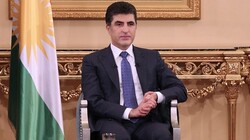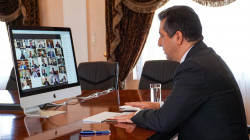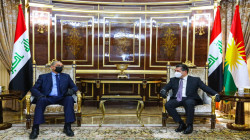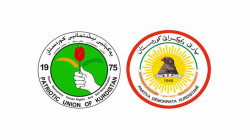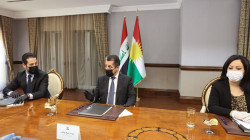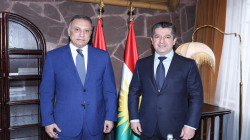Masoud Barzani reveals what was never announced
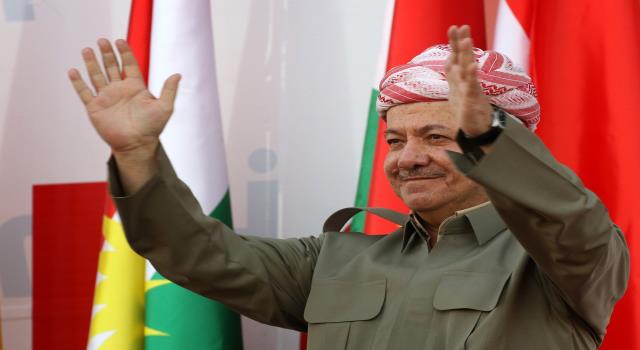
Shafaq News/The Kurdish leader Masoud Barzani released a book (Bo Miyejoo – For History) shedding the light on the secrets and mysteries before Kurdistan’s independence referendum and the stage that followed; revealing unannounced aspects, especially the international pressure exerted on him to prevent the referendum. Barzani dedicated his book to the Peshmerga.
He described them as "those who do not bow before the enemy" and gave –before counting the reasons behind the Kurdish leadership’s decision to launch the referendum- a brief history of Kurdistan’s division over the region’s countries and the establishment of the Iraqi state, as well as the revolutions led by the Kurds for their independence over the past century. According to a reading by Shafaq News agency.
Moreover, Barzani revealed what happened at the Sahela meeting -a town between Kurdistan and Nineveh witnessed fierce battles with the Popular Mobilization Forces (PMF).
The meeting included the U.S. envoy in the fight against ISIS, Brett McGurk, and ambassadors of some foreign countries in Iraq, Barzani said, "the most important diplomatic move in September, was the meeting of Sahela, the message of Secretary of State Rex W.Tillerson, and the phone call of the British Foreign Secretary as well as France’s President, Emmanuel Macron".
"At this meeting, they told me they understand the aspirations of Kurdistan’s people, but they believe that Kurdistan should return to the path of dialogue; and if there are no reached results, they will come with a letter from the U.S.
secretary of state declaring his understanding of the need for a referendum.
The main objective of this proposal was to postpone the referendum.. I told them the decision of the referendum is not personal, but the decision of all the Kurdish parties that participated in the adoption of this resolution and I cannot take the decision alone.
At the same time, I informed them that we will not close the door to dialogue with Baghdad, even though Baghdad do not consider us real partners; they only look at the Kurdish people as an annex and after all these calamities we will not accept to be an annex”, said Barzani. "Another topic that was the discussion of most media organizations and political centers before and after the referendum..
The message of the U.S. Secretary of State, in which he presented a set of ideas and proposals in exchange for the cancellation of the referendum, in fact, the letter was not official but a draft prepared by Brett McGurk, (after which President Trump tweeted his denial of any knowledge of him), Douglas Suleiman, the U.S.
ambassador to Iraq and others. It was not clear whether the letter would be Ratified and signed by the Minister.
The U.S. diplomats believed if the referendum was to be postponed or canceled, the Secretary of State would sign the letter, and for our part, we saw it as good in terms of wording and content, but no necessary guarantees were given to rely on it or even trust it”, Masoud Barzani added.
"It was possible to make Tillerson's message a base for assurance, and if the talks with Iraq did not succeed, then Kurdistan would hold the referendum, and America should respect its results.
I asked the U.S. government to change the word respect in the letter to support, but the Americans apologized and said we could not use the word support, and I responded: if you cannot replace a word, then stop expecting us to convince Kurdistan’s people to abandon the referendum. The Americans thought that if the referendum was held, it would weaken the Iraqi prime minister –at the time- Haider Al-Abadi -if the referendum does not take place, Al-Abadi will be strong enough to expel Iran from Iraq”, the president of the Kurdistan Democratic Party (KDP) said.
"Two days before the referendum, attempts were made to prevent it from taking place in Kirkuk..In fact, before June 7th, 2017, there was a belief that the Kurdish political leadership would not hold the referendum in Kirkuk and article 140 areas to prevent any argument with the Kurdish peoples’ enemies, and to maintain the issue of Kirkuk and the disputed areas for talks.. but making Kirkuk within the referendum map was at the request and determination of those parties who handed over Kirkuk and were the cause of the events of October 16th -in reference to leaders of the Patriotic Union of Kurdistan (PUK), when
